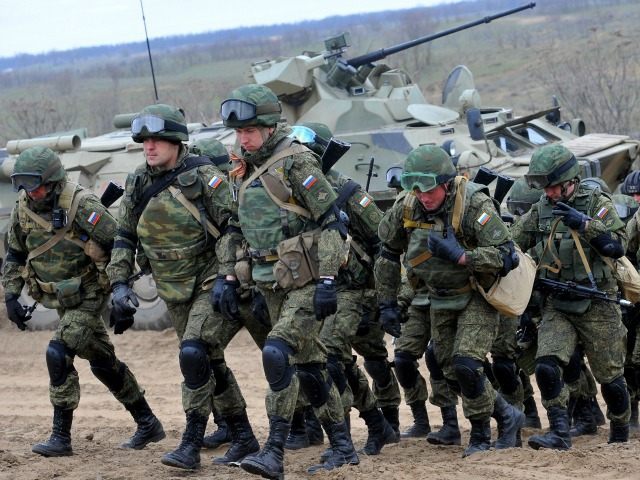Speaking at a security forum in Slovakia on Sunday, a member of the Russian parliament suggested his country’s military would resort to nuclear weapons to repel a U.S. or NATO incursion into Crimea or eastern Ukraine.
“On the issue of NATO expansion on our borders, at some point I heard from the Russian military – and I think they are right – if U.S. forces, NATO forces, are, were, in the Crimea, in eastern Ukraine, Russia is undefendable militarily in case of conflict without using nuclear weapons in the early stage of the conflict,” said parliamentarian Vyacheslav Alekseyevich Nikonov, as quoted by Defense One.
He added that Russian military leaders have “discussed Moscow’s willingness to use nuclear weapons” with their counterparts in NATO, during the course of “broader and increasingly contentious conversations about the alliance’s expansion.”
Russia supports, and chronically denies supporting, separatist insurgents in Russian-speaking eastern Ukraine. Russia annexed Crimea from Ukraine outright in 2014.
Patrick Tucker of Defense One notes these comments are in line with Russian President Vladimir Putin’s doctrine of allowing the limited use of nuclear weapons against “large-scale aggression utilizing conventional weapons in situations critical to the national security of the Russian Federation.”
That is not mere rhetoric. Newsweek points out that it is actually written down in the official Military Doctrine of Russia. Analysts disagree over what the Russians would actually regard as a crisis serious enough to justify a nuclear first strike, how much their doctrine has truly changed since the Soviet era, and how much it differs in practice from the posture of other nuclear nations, including the United States. Nikonov would certainly be making news by revealing that mere deployment of NATO forces to eastern Ukraine would prompt nuclear retaliation.
Nikonov cited the size and power of the NATO alliance, which he described as accounting for “three-quarters of the global defense money,” as justification for Russian paranoia about Western encroachments.
Conversely, Baltic states look at Russia’s actions in Ukraine and wonder when they might expect a visit from the mysterious unidentified troops that presaged the annexation of Crimea, widely known as Putin’s “little green men.” The Russians, of course, view the military buildup by those nervous nations as provocative, rather than a response to Russian provocation.
Newsweek notes that Nikonov also complained about the strained relationship between Russia and the United States, which he blamed in part on the career destruction of American officials who reach out to Russia with too much enthusiasm.

COMMENTS
Please let us know if you're having issues with commenting.